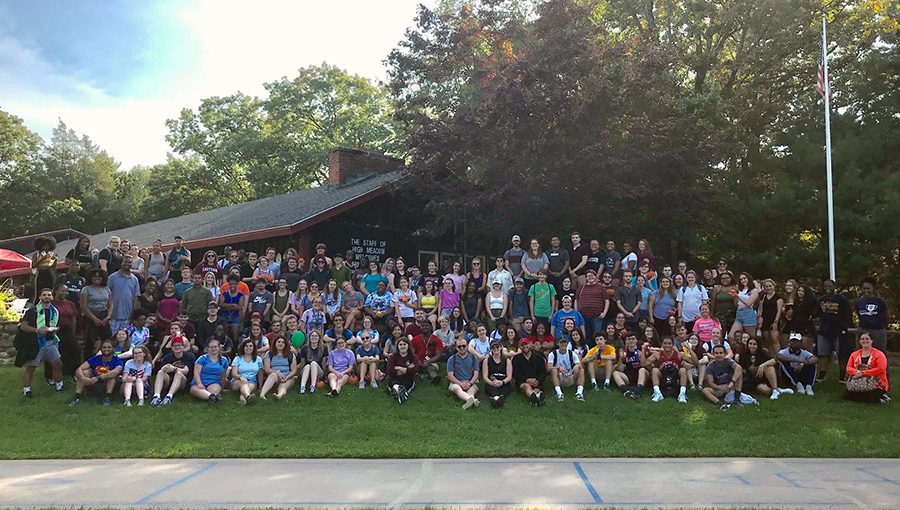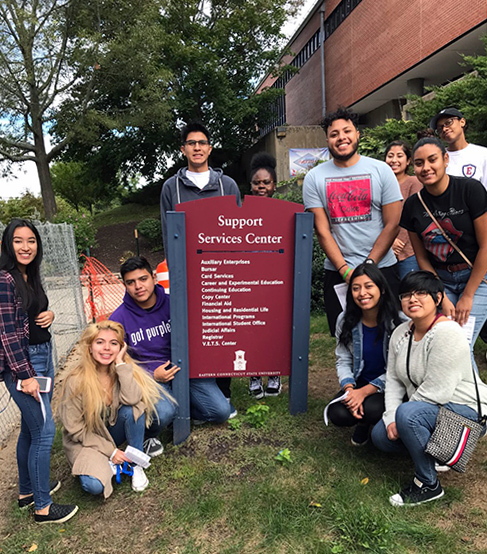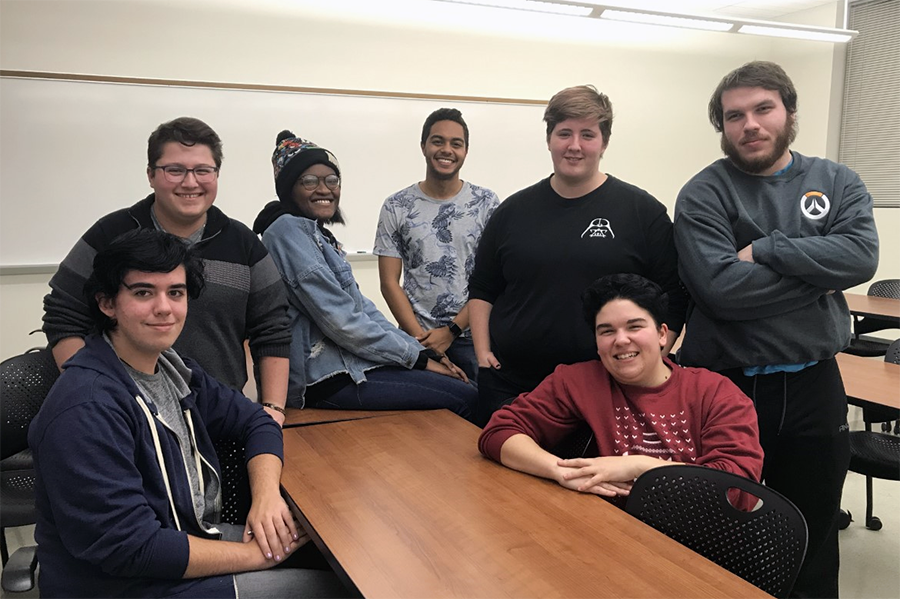


Published on December 10, 2019

Do you like to be surrounded by like-minded people? Are you passionate about social justice? Eastern Connecticut State University’s “theme housing” communities provide an inclusive residential experience that caters to students’ diverse interests.
Theme housing brings together students with similar interests to live in the same residence hall and participate in meetings, assist in planning programs, work toward common goals and engage with the larger residential campus community. Participating in theme housing provides a sense of belonging and helps residents gain leadership, academic and social skills.
More than 220 students live in theme housing this semester, with 18 themes ranging from academic and community engagement-based communities to visual arts and social justice. Theme titles include “Service with a Purpose,” “Honors Scholars,” “Quiet/Substance Free,” and more.

Students in theme housing see academic benefits as well. According to Coleman, students involved in theme housing have a higher grade-point average (3.12) in comparison to non-theme housing residential students, who have an average GPA of 2.81. The housing office provided data from the 2015-16 academic year that shows theme housing students had a retention rate of 95 percent, whereas non-theme housing students had a rate of 92 percent. Theme housing students also have an increase in degree completion.
Housing Director LaMar Coleman describes the importance of inclusivity and meeting people with similar passions. “Theme housing provides good opportunities for students to make connections with peers and to be engaged throughout their collegiate experience,” said housing director, “programming for the themes is tailored to residents’ interests; who are provided various resources and funding to further explore those interests.”
Since its creation in 2009, approximately 1,500 students have participated in theme housing. Each theme is designated to a specific dorm of either first year, upperclassmen or transfer students. Students in each theme gather twice a month to discuss events and activities that build a bond and trust between members and develop initiatives and community engagement projects that align with their theme.
One popular theme is First Generation (First-Gen). Advised by Hall Director Sheldon Henry, this theme is for students who self-identify as the first in their family to attend college. With peer mentoring, academic counseling, social activities and informative workshops, this theme supports students who are the first in their families to navigate the complexities of college life.
Psychology major Joselyn Perez ’21, president of First-Gen, described her responsibilities as president and the different events the theme has sponsored in the past. “One of my major responsibilities is planning activities. For instance, we went to Windham High School to speak to high school seniors about what to expect their freshman year of college.”

Perez also speaks highly about the sense of belonging she has experienced. “It is a way for me to connect with other students who are also first generation. Being a first-generation college student to me means having a bigger responsibility for both myself and my family while also striving to achieve the highest level of education.”
Another theme that values acceptance is Gender Inclusive. This theme offers a supportive and welcoming environment for students with an interest in gender identity and expression. “Gender inclusivity is important on a college campus because it is vital for all students to have a space they feel included, safe, supported and welcomed,” said Hall Director Erica Sharp, advisor of the theme. This theme works closely with Eastern’s Pride Center, which provides an empowering environment for all students, particularly those who identify as LGBTQ.
One of the larger themes on campus is the Green Theme, which promotes energy conservation by reducing carbon footprint, conserving natural resources and recycling. Advised by Hall Director William Gonzalez, this theme has expanded its sustainability efforts throughout the Willimantic community. The students have conducted various service projects including educating students on sustainable energy and participating in town-wide clean-ups.
The housing office is committed to improving the themes that are already offered by connecting them to academic courses in hopes of evolving learning communities and expanding to more academic areas. “Theme housing provides students with additional resources,” said Coleman. “It further explores and maximizes their interests which ultimately turn into learning opportunities.”
Written by Bobbi Brown